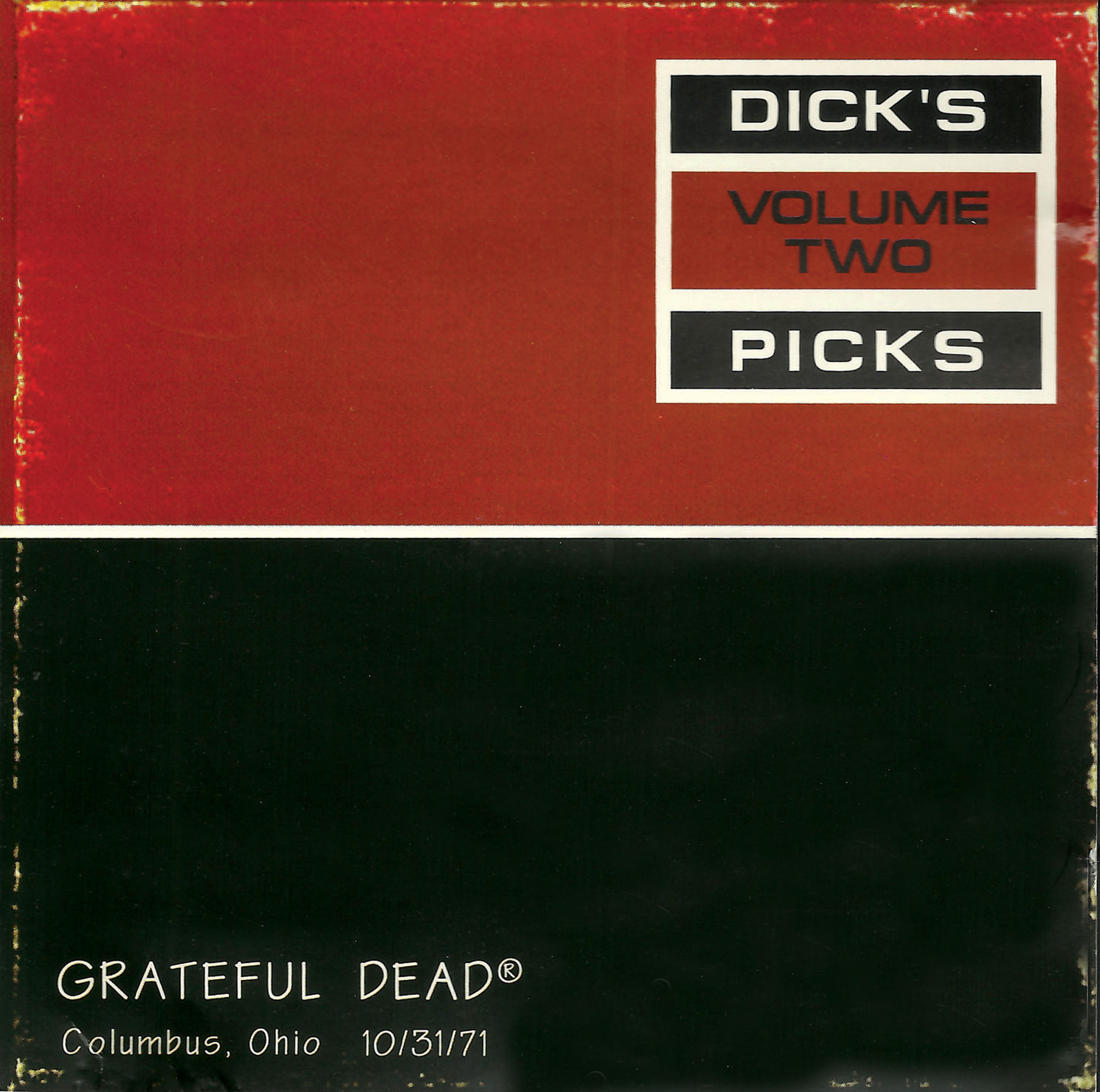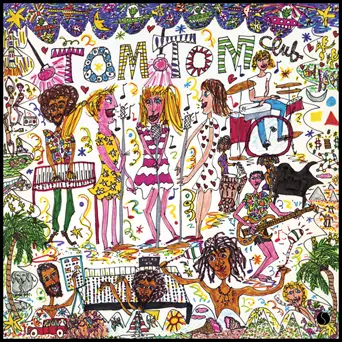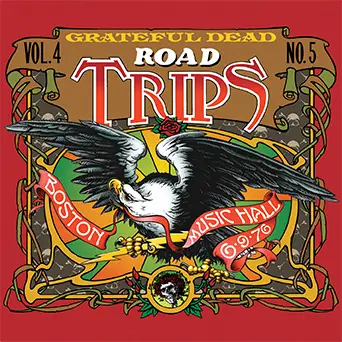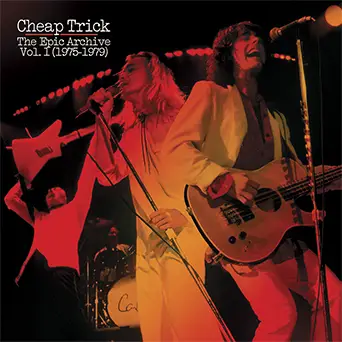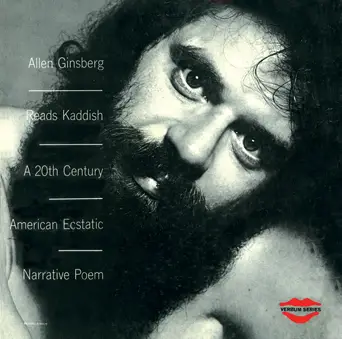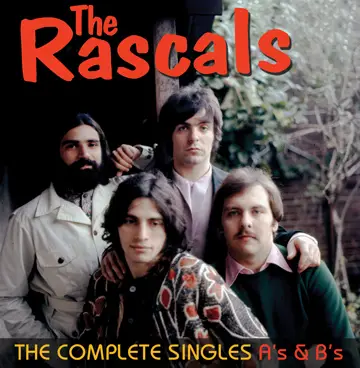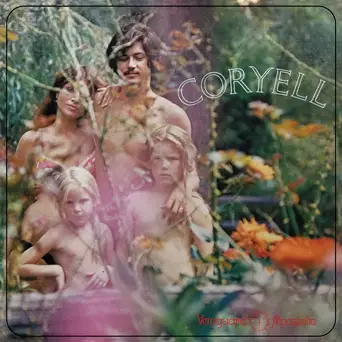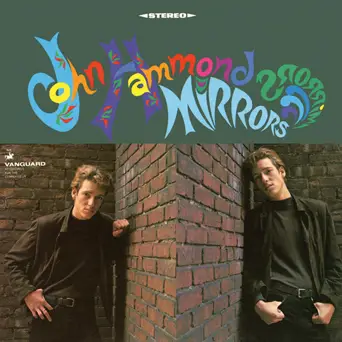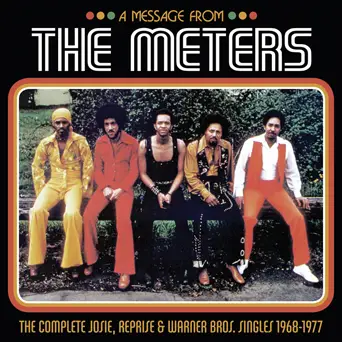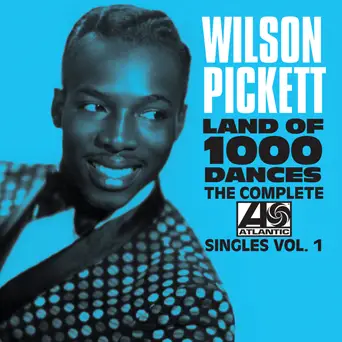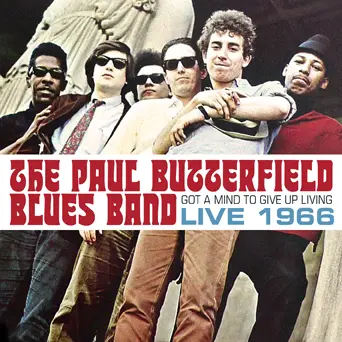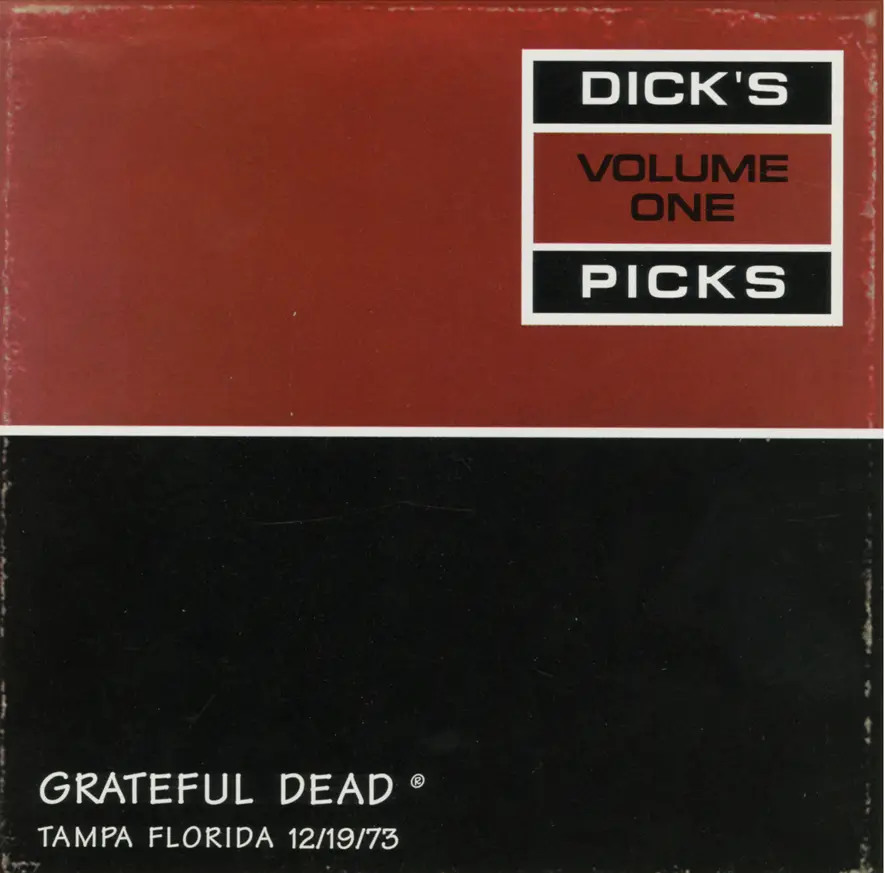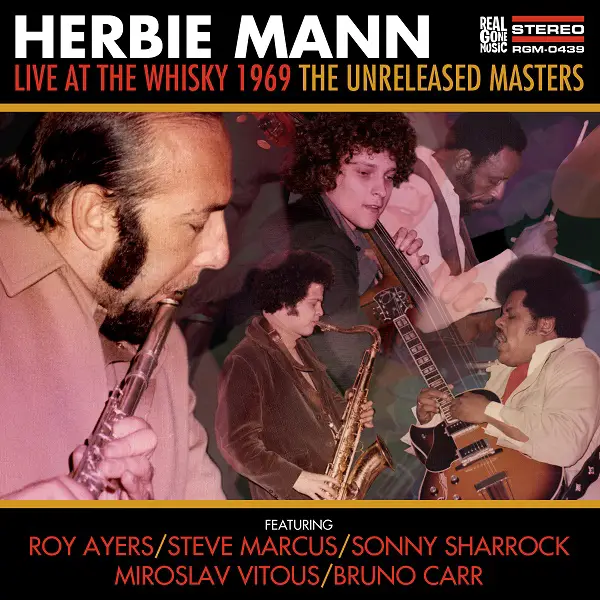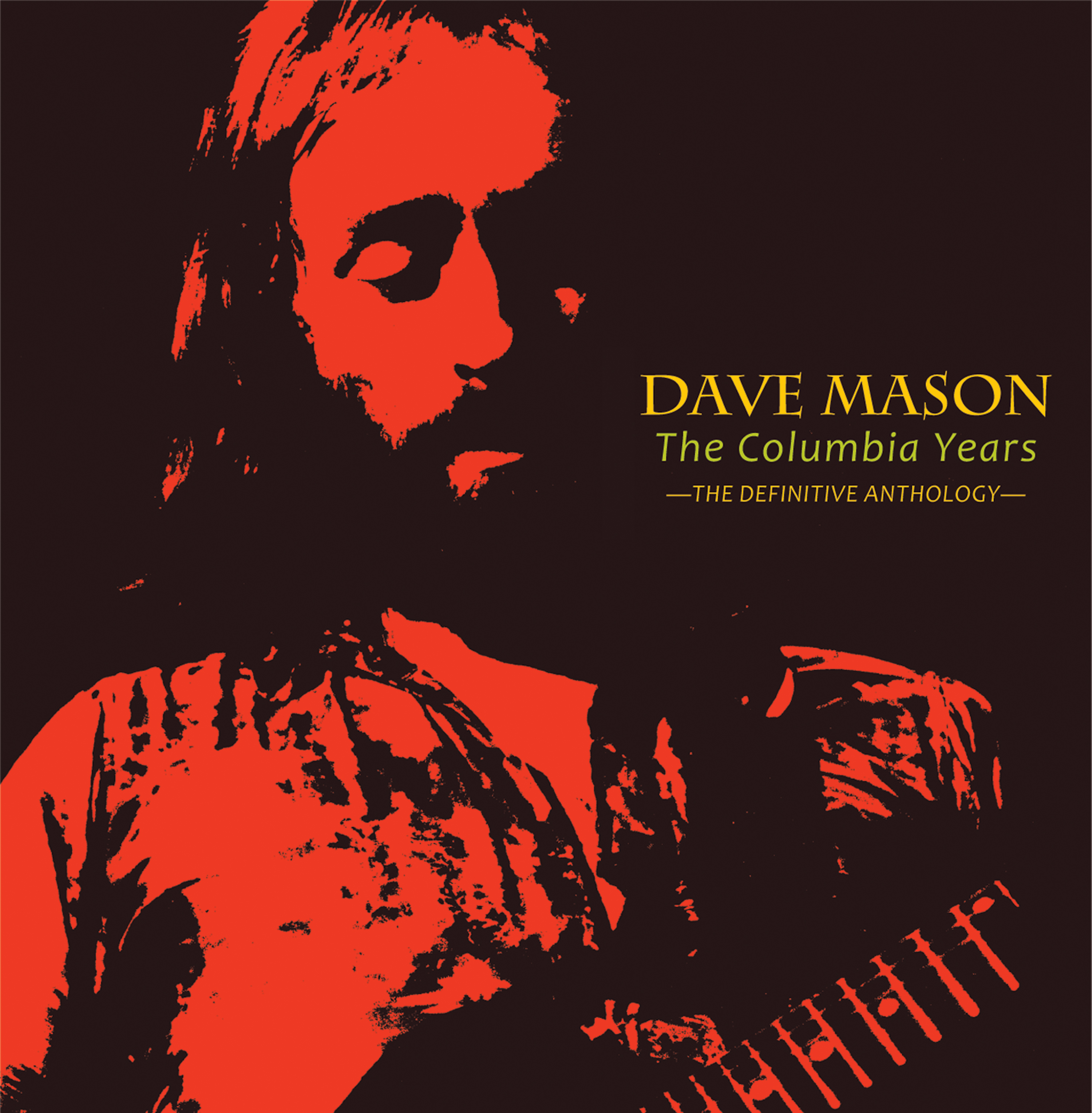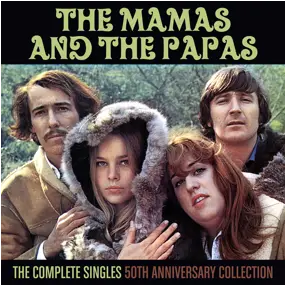This February, Real Gone Music defies the Winter chill with a series of releases guaranteed to warm the bones of just about any country music lover. First, the label revisits country legend Barbara Mandrell’s early years on the Columbia label with a deluxe album reissue featuring no less than seven unreleased tracks. Then, the rare recordings by the classic, early-‘70s edition of Ralph Stanley’s Clinch Mountain Boys featuring budding superstars Ricky Skaggs and Keith Whitley receive their first-ever comprehensive collection. And, Real Gone reissues on vinyl perhaps the greatest album of western music ever made, Marty Robbins’ Gunfighter Ballads and Trail Songs.
Speaking of classic albums reissued on vinyl, Real Gone is releasing the legendary Doug Sahm and Band record from 1972 that featured the genuine Texas groover with everybody from Dr. John to Bob Dylan. Then, the label takes one of the hairpin (safety pin?) turns for which it’s famous by reissuing VI, the fifth (!) album from notorious hardcore punk band the Circle Jerks, followed by another 180-degree maneuver featuring the only single-CD release from the Grateful Dead’s Dick’s Picks series. And, finally, the label is resurrecting some titles in limited edition re-presses, including Alejandro Jodorowsky’s Holy Mountain soundtrack, Charles Bukowski’s spoken word album Reads His Poetry, the Red Bird Girls—Very First Time in True Stereo various artists collection, and the deluxe reissue of The Ides of March’s classic Vehicle album.
Stardom is a funny thing. Sometimes a talented performer can labor for years turning out recordings of such a high quality that chart success seems a foregone conclusion. Then, a change of label, or producer, or public taste, and boom! Superstardom. Such was the trajectory of Barbara Mandrell’s career. She started singing for producer Billy Sherrill at Columbia Records in Nashville, making one exceptional country-soul record after another. She enjoyed several solid Top 20 Columbia singles but never quite achieved pop-crossover stardom. Sherrill reluctantly let her go, and in 1975 Barbara signed with ABC/Dot—later morphing into MCA. She subsequently enjoyed a Hall of Fame run with a long string of hits highlighted by two Entertainer of the Year awards from the Country Music Association—the first female to accomplish the feat (the only other one is Taylor Swift!)—her own NBC television show, and other accolades too numerous to mention. Along the way, she blended her distinctive country-pop-rhythm and blues sound to appeal to audiences of all these genres. Now, with its release of This Time I Almost Made It—The Lost Columbia Masters, Real Gone Music trains a spotlight on Barbara’s unjustly neglected Columbia period. The 20-track collection features the CD debut of her 1974 album This Time I Almost Made It, including her country hits “This Time I Almost Made It” and “Wonder When My Baby’s Coming Home,” compelling covers of country-pop classics of the period (“A Very Special Love Song,” “Words,” “You’re All I Need To Get By,” “Something”),’ the rare non-LP side “Son of a Gun” and compilation album obscurity “Scarlet Water” – plus a full seven unreleased tracks dating from her very first Columbia session in 1969 through 1970, headlined by her fantastic version of Joe Maphis’ “Dim Lights, Thick Smoke, and Loud Music.” In fact, only two of these tracks have appeared on CD before, and with remastering by Vic Anesini and Maria Triana at Sony’s Battery Studios, and liner notes by Joe Marchese featuring quotes from the great lady herself and rare period photos, this is by any yardstick a major addition to the discography of a country music legend.
Back in the rock and roll-dominated early ‘70s, not many people were paying attention to the sound of traditional bluegrass as practiced by one of its greatest artists, Ralph Stanley, and his band The Clinch Mountain Boys. But there were two very notable exceptions. Due to a flat tire, Stanley and the Boys were late for a gig in Fort Gay, West Virginia when the club owner spotted two kids with instruments in the crowd and invited them on stage to fill the time. As Ralph tells it, “I walked in and these two boys were singing the Stanley Brothers’ music better than the Stanley Brothers. I began naming some more of our old songs and I couldn’t mention one they couldn’t sing. They said the Stanley Brothers had always been their favorites and you could tell by hearing them that we had. They said they would like to record an album of our songs, as a tribute…” Well, those two boys were, of course, Ricky Skaggs and Keith Whitley, and the album—initially titled Tribute to the Stanley Brothers by Keith Whitley and Ricky Skaggs, but later changed to Ralph Stanley and the Clinch Mountain Boys Featuring Keith Whitley and Ricky Skaggs after they officially joined Ralph’s outfit—was recorded in January 1971 with The Clinch Mountain Boys backing up the duo. Thus was formed one of the greatest bluegrass bands of all time, and certainly Ralph’s finest post-Carter Stanley aggregation, with Roy Lee Centers on guitar and vocals, Curly Ray Cline on fiddle, and Jack Cooke on bass joining the two youths and Stanley. Soon after Whitley and Skaggs got out of school that Summer, they went into the studio with the band to record Ralph Stanley’s first record for the Michigan-based Jessup label, Ralph Stanley and the Clinch Mountain Boys Sing Michigan Bluegrass, which featured a bunch of songs Stanley had never done before. A mere five weeks later, the group went back into the studio to record their second and final Jessup album, Gospel Echoes of the Stanley Brothers, which delved into the Stanley Brothers’ deep and rich library of gospel songs. Now, Real Gone Music is proud to gather all three albums recorded by future superstars Whitley and Skaggs with The Clinch Mountain Boys together for the first time on Ralph Stanley & the Clinch Mountain Boys Featuring Ricky Skaggs & Keith Whitley: The Complete Jessup Recordings Plus!, boasting two CDs and 34 tracks of some of the hottest playing and most haunting singing you’ll ever hear, remastered to send a shiver down your spine by Mike Milchner of SonicVision. Liner notes by Grammy-winning writer Colin Escott and rare photos accompany.
Real Gone Music is proud to present, for the first time in close to 55 years, the original mono version of what most folks consider to be the single greatest postwar album of Western music, Marty Robbins: Gunfighter Ballads and Trail Songs. Everything about this album is iconic, from its “quick draw” cover art to the songs it contains—“Big Iron,” “Cool Water,” “The Master’s Call,” “Billy the Kid,” “The Strawberry Roan,” and, of course, “El Paso” (here in its rare, full-length version)— that have come to define the Western genre. And the music has never sounded better than it does here: our limited edition (of 600 copies) 180-gram black vinyl pressing was remastered by Vic Anesini at Battery Studios in New York with lacquer cutting by Kevin Gray. Comes complete with the amazing original album art, too…it’s the first vinyl reissue in the “modern” era of this classic record.
Doug Sahm’s first solo record was something of a coming out party, a big budget affair that let the world know what the insiders already knew: that Doug Sahm was a quintessentially American musical visionary. After The Sir Douglas Quintet concluded its contract with Smash/Mercury, Jerry Wexler convinced Sahm to sign with Atlantic and brought him to New York for the sessions that were to become Doug Sahm and Band. To call the personnel that Wexler and co-producer Arif Mardin assembled for the album “star-studded” is a severe understatement: among the musicians on this 1972 release were Dr. John, David “Fathead” Newman, David Bromberg, and Flaco Jiménez (the first in a series of collaborations with Doug); Sir Doug Quintet stalwarts Augie Meyers, Jack Barber, and George Rains; and, of course, Bob Dylan, who contributes a hitherto-unheard song (“Wallflower”). It is a testament to Sahm’s boundless talent that all of these stellar musicians wanted to play with him; it’s even more of a testament that despite all of the formidable artists in the room, and despite the fact that Sahm only wrote three of the album’s 12 tunes, Doug Sahm and Band never sounds like anything but a Doug Sahm record. And a hell of a good one, too, highlighted by the anthemic “(Is Anybody Going to) San Antone” and the brilliant Willie Nelson cover “Me and Paul.” This turned out to be Doug’s only charting solo album, but he was never about the money. What mattered to Doug was the groove, and this record has it in every one of ‘em. Real Gone Music is proud to present the first-ever vinyl reissue of this classic record, limited to 1000 gold vinyl copies. A must for your American music collection.
The joke (jerk?) is on you—VI was actually the Circle Jerks’ 5th album! But then, there were always enough jokes to go around with this hardcore outfit formed by former Redd Kross guitarist Greg Hetson and former Black Flag vocalist Keith Morris; in contrast to their more serious-minded hardcore peers like M.D.C. and Minor Threat, the Circle Jerks were, in the words of Keith Morris, “the party meisters. We wanted to find the keg and get laid.” That didn’t stop them from putting out some of the best albums of the entire hardcore movement, and this long out-of-print 1987 release stands as one of the best punk albums of the ‘80s. Note that we didn’t say hardcore punk; by this time the tempos had slowed and the production values increased. Predictably, this led some to cry sell-out, but VI goes right to the jugular with such skewerings of the consumer culture as “American Way” and “Living,” their lyrics spit out by the newly clean and sober Morris with his trademark desperate edge. In fact, Hetson, in Tony Rettman’s revealing liner notes, states that VI just may be their best record: “You know, every once in a while, a track from VI will come up on my iPod and I’m struck by how good a record it is. It’s definitely a consistently better record than others we’ve done. The songwriting, the sound quality, the charge of it; it definitely still holds up.” Real Gone Music is proud to reissue this punk classic, remastered by Sean Brennan at Sony’s Battery Studios, complete with lyrics and memorabilia.
The Grateful Dead’s Halloween 1971 performance is almost enough to make one believe in spirits. For that night—captured on Dick’s Picks Vol. 2—Columbus, Ohio 10/31/71, the only single CD release in the entire Dick’s Picks series—the group played the most ethereal, dreamy, and, yes, spooky version of “Dark Star” ever recorded; it’s almost as if Jerry Garcia was communing with his ancestors (and maybe John Coltrane) for the first seven minutes of his beautifully structured, contemplative and yearning solo. Then, after the vocal verse, Garcia, rhythm guitarist Bob Weir and bassist Phil Lesh take turns suggesting a new improvisational theme before the band telepathically picks up on a two-note theme and Garcia launches into some of the most ecstatic guitar playing ever captured on tape anywhere (labeled by some the “Tighten Up” jam after the Archie Bell & the Drells song; others hear an embryonic “Eyes of the World”). The rest of the disc is more than fine, with a spirited “Sugar Magnolia,” a rare, early-‘70s performance of “St. Stephen” (the final live version until 1976) and a great “Not Fade Away”/”Goin’ Down the Road Feeling Bad” closer rounding out the 59-minute program. But really, the “Dark Star” is worth the price of this single CD release alone. Out of print for years!
Real Gone is also putting back into print some of its most-requested out-of-print releases. Alejandro Jodorowsky’s soundtrack to The Holy Mountain (co-composed by Ron Frangipane and jazz legend Don Cherry) is every bit as hallucinatory as the fantastic visual imagery in the film, and the label is putting out a limited edition (of 500) blue vinyl pressing of this double-album package, complete with liner notes and production stills. Out January 15. Then, the label is taking a walk on the even wilder side with its re-pressing of Charles Bukowski: Reads His Poetry, which captures the notorious author and libertine at a 1972 reading at which the topics included perversion, poverty, drunkenness, gambling and bodily functions. The ultimate non-PC record, out in a “yellow beer” vinyl edition limited to 400 copies. In addition, Real Gone is reissuing some out-of print compact discs. The Red Bird Girls—Very First Time in True Stereo collection brought together 20 classic ‘n’ rare girl group tracks from George Goldner’s Red Bird label and issued them in true stereo for the very first time; it appears here in lower-priced, jewel case version. And one of the all-time great “horn” bands, The Ides of March, sees their classic Vehicle album come back out in a lower-priced Expanded Slipcase Edition featuring four single bonus tracks and liner notes boasting quotes from Jim Peterik and Larry Millas.
JANUARY 15, 2016 RELEASE FROM REAL GONE MUSIC
Alejandro Jodorowsky’s The Holy Mountain: Original Soundtrack (Limited Blue Vinyl Edition)
FEBRUARY 5, 2016 RELEASES FROM REAL GONE MUSIC
Marty Robbins: Gunfighter Ballads and Trail Songs (Limited 180-Gram Black Vinyl Edition)
Doug Sahm: Doug Sahm and Band (Limited Gold Vinyl Edition)
Grateful Dead: Dick’s Picks Vol. 2—Columbus, Ohio 10/31/71
Various Artists: The Red Bird Girls—Very First Time in True Stereo (Jewel Case Version)
The Ides of March: Vehicle (Expanded Slipcase Edition)
FEBRUARY 12, 2016 RELEASES FROM REAL GONE MUSIC
Barbara Mandrell: This Time I Almost Made It—The Lost Columbia Masters
Charles Bukowski: Reads His Poetry (Limited Yellow Beer Vinyl Edition)





